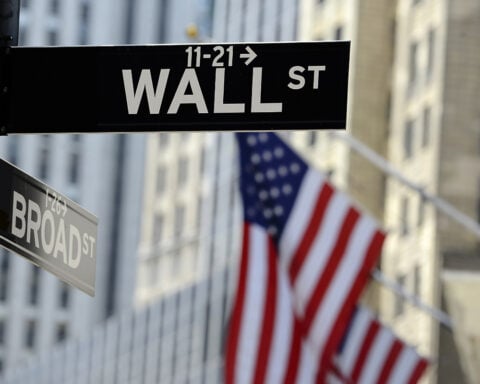Most Asian shares took a downturn as concerns about U.S. banks and declining demand from China, a significant growth propeller for the region, loomed large.
Stephen Innes, a managing partner at SPI Asset Management, noted that “Asian stocks were grappling to find a clear path after China’s weak inflation data signalled a decline in demand.”
According to Innes, recent figures reveal very low inflation and sluggish credit expansions in China, hinting at a slowdown in growth as the initial surge from the nation’s relaxation of pandemic-related restrictions begins to wane.
Despite the general downturn, Japan’s Nikkei 225 index rose 0.9% to 29,393.24 in morning trading, boosted by companies such as Nissan Motor Co. reporting fairly positive earnings. However, SoftBank Group Corp. suffered a decline following its report of consecutive annual losses.
Australia’s S&P/ASX 200 slipped 0.1% to 7,244.50, South Korea’s Kospi fell 0.4% to 2,481.40, and Hong Kong’s Hang Seng remained virtually static at 19,746.09. The Shanghai Composite retreated 0.1% to 3,304.87.
Wall Street’s shares were weighed down by a surprising plunge in The Walt Disney Co. shares after the company reported a loss in streaming subscribers last quarter.
The S&P 500 dropped 7.02 points, or 0.2%, to 4,130.62, with two-thirds of stocks in the index declining. The Dow Jones Industrial Average fell 221.82 points, or 0.7%, to 33,309.51, while the Nasdaq composite ascended 22.07 points, or 0.2%, to 12,328.51.
Investors have been looking for potential casualties in the U.S. banking sector following the downfall of three prominent banks since March due to high-interest rates.
Providing some cushion to overall market losses was a report showing milder-than-expected U.S. inflation at the wholesale level last month. This followed a report indicating that consumer-level inflation was mainly in line with forecasts.
These findings have strengthened Wall Street’s expectations that the Federal Reserve will refrain from increasing interest rates at its next meeting in June. This would be the first in over a year.
Meanwhile, a separate U.S. report revealed a higher-than-expected number of unemployment benefit claims last week. While this is a concerning sign for workers and potential recession fears, a slowing labour market could help alleviate the Fed’s concerns about soaring inflation due to a hyperactive job market.
These reports led to a drop in Treasury yields, with traders betting on a high probability of a Fed rate cut later this year. While such cuts are a boon for financial markets, they are typically reserved for when the economy teeters on the brink of recession.
For the banking sector, the more significant worry is that its issues might lead to a reduction in lending, damaging the economy. The U.S. government is nearing a June 1 deadline that could see it run out of cash unless Congress approves increased borrowing. A default on the U.S. government’s debt could have severe economic implications.
The 10-year Treasury yield fell to 3.39% from 3.44%, influencing rates for mortgages and other key loans. The two-year Treasury yield, more sensitive to Fed expectations, decreased slightly to 3.90%.
In energy trading, benchmark U.S. crude rose 30 cents to $71.17 a barrel, while Brent crude, the international standard, increased by 23 cents to $75.21 a barrel.
In currency trading, the U.S. dollar remained steady at 134.52 Japanese yen. The euro experienced a minor rise from $1.0921 to $1.0922.
These developments come amid a time of global economic uncertainty. Investors are cautious with inflationary concerns in the U.S. and the weakening demand in China, the world’s second-largest economy. The ongoing issues in the U.S. banking industry only add to these apprehensions.
Furthermore, the risk of the U.S. government running out of cash by June 1 if Congress doesn’t approve more borrowing adds another layer of complexity to the current economic climate. A potential default on the U.S. government’s debt could have far-reaching implications for the U.S. and the global economy.
In this context, the performance of individual stocks and sectors provides essential signals for investors. For instance, the gains made by Nissan Motor Co. and the losses reported by SoftBank Group Corp. reflect the broader trends in the technology and automotive sectors. Similarly, the fall of Walt Disney Co. shares after a reported loss in streaming subscribers provides insights into the highly competitive streaming industry.
Despite the general downtrend, it’s worth noting that the Nasdaq composite index managed a slight rise. This suggests that despite facing headwinds, the technology sector still holds growth potential.
The various economic indicators and market trends underline the importance of a diversified investment strategy in uncertain times. As the global economy navigates through these challenges, investors will be keenly watching for signals that might indicate the future direction of financial markets.







